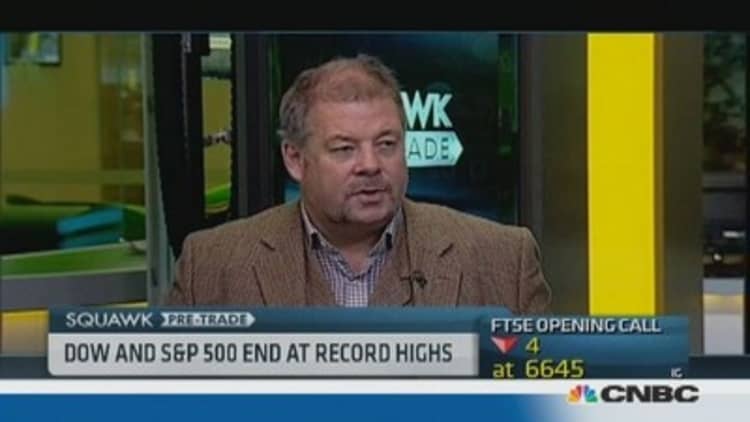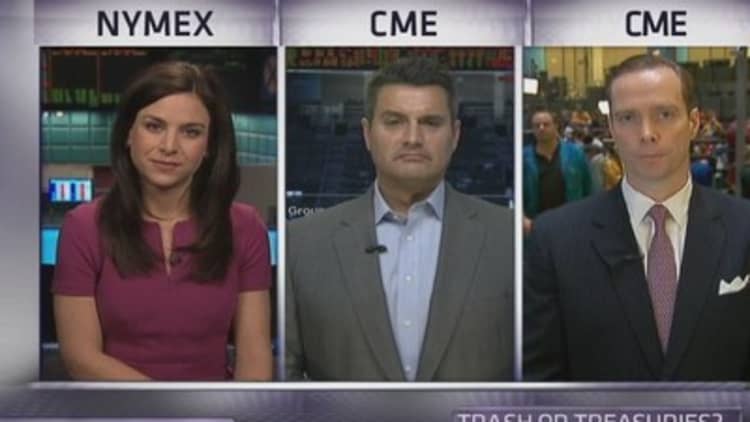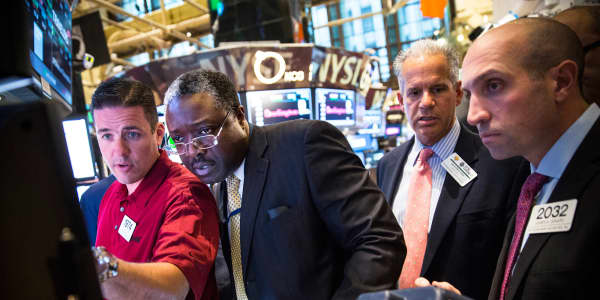
If fixed-income investors were under any impression that 2014 could mark an end to the turbulence experienced this year, they should think again – with some analysts predicting volatile conditions on both sides of the Atlantic.
"It's a dangerous game trying to time your exit," Johan Jooste, head of the London investment office at private banking group Julius Baer told CNBC Thursday. "The level of yields and the direction of yields both argue against really having strong fixed income exposure."
The interest rate on the U.S. benchmark 10-year Treasury started 2013 at 1.8 percent, following an open-ended commitment by theFederal Reserve to continue buying bonds, which suppressed yields close to record-low rates.
(Read More: US recession is nigh...and the Fed can't stop it: SocGen bear)
But with the Fed looking to take the foot off the gas – which would see a major buyer retreating from the market - yields have been on a rollercoaster ride since May. Yields on 10-year notes spiked to 3 percent in September before settling near 2.7 percent.
The worry for investors is that as yields surge higher, the bond price deteriorates - and anyone holding government bonds when this spike happens is set to lose money.
With the U.S. Treasury market influencing the price all sorts of fixed income assets all over the globe, 2014 could prove to be a minefield, according to Bill Blain, senior fixed income broker at Mint Partners.
"I reckon we're going to have hell in the bond markets next year," he told CNBC.
(Read More: The Fed has created a huge global bubble: Stockman)
"I think there is potential for a massive sell-off in the U.S. once we see the taper (of the Fed's bond buying program) finally start and that's not because people are not prepared, it's because that is what happens when you stop distorting markets."
The advice from Blain is: "Buy (bonds) now and sell them as soon as you feel they are weak."
Euro crisis reignited?
Meanwhile, researchers at Swiss bank UBS said the "very strange taper-talk state" in sovereign bond markets meant investors should look to peripheral Europe for safety.
Spanish and Italian bond yields were once a key gauge for how serious the euro zone sovereign debt crisis was, with yields peaking above 7 percent in 2012. But markets have eased since, interest rates have slunk down to 4 percent and UBS said that investors should consider buying peripheral debt.
(Read More: Has the dreadedtaper already started?)

"In risk-adjusted terms, given the low volatility that we see in the government bond markets in Europe, peripheral European government bonds are looking very attractive indeed," strategists Ramin Nakisa and Stephane Deo said in a note released on Thursday.
"If we look back over the last three months, then in risk-adjusted terms the combination of high coupon and low volatility makes Spain, and to a lesser extent, Italy, rank well above Treasurys and even EM (emerging market) sovereign debt."
But Blain gave a stark warning to investors looking across the Atlantic at the bonds of southern European nations.
He expects the European Central Bank (ECB) to inject liquidity into the markets via its long-term refinancing operation and to opt for negative rates, which would see European banks charged interest on the reserves they keep at the ECB.
As a result, lenders would use more money to buy up peripheral debt, according to Blain, thus increasing the link between European banks and their exposure to the region's fragile economies.
"They are not sovereign bonds anymore, they are bonds issued by a sovereign entities linked to a currency they don't control," he said. "If things turn badly, let's say at the result of another rout in the U.S. bond markets when the taper finally begins...then we get the whole crisis reignited."
By CNBC.com's Matt Clinch. Follow him on Twitter @mattclinch81





